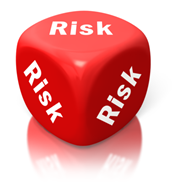Accounting
Changes Seen in Audit Committee Composition Amid Expanded Scope and Emerging Risks
Corporate boards are taking a fresh look at their audit committee structures and practices in light of emerging corporate reporting areas and increased risks...
Jan. 16, 2023

Corporate boards are taking a fresh look at their audit committee structures and practices in light of emerging corporate reporting areas and increased risks, according to a new survey and collaborative report from Deloitte’s Center for Board Effectiveness and the Center for Audit Quality (CAQ).
Audit Committee Practices Report: Priorities and Committee Composition, a survey of 164 audit committee members of primarily large-cap, public companies in the U.S., provides insight into shifting oversight priorities and practices related to audit committee composition. Over the next 12 months, one-quarter of respondents expect to make changes to the composition of their audit committee, with 25% anticipating increasing the size of their audit committee, 28% planning on replacing their audit committee chair, and 42% expecting to replace one or more committee members.
“Audit committees continue to be challenged by ‘scope creep’ — new demands that involve overseeing areas of disclosure and reporting that extend beyond their historical core responsibility of financial reporting and audit oversight. As a result, audit committees are considering if their composition needs to change,” said Krista Parsons, Audit & Assurance managing director with Deloitte’s Center for Board Effectiveness and Audit Committee Program leader. “The good news is that audit committees overwhelmingly report (92%) they have the expertise they need. Still, it is critically important for audit committees to continuously assess their current composition and skill set to make sure it meets the needs of the organization and the risks it faces.”
Respondents calling for additional skills and experience of their audit committee pointed to cybersecurity and technology as areas of expertise that could enhance their effectiveness. Within the financial services sector, respondents noted compliance as an area for enhanced proficiency; non-financial services respondents identified industry experience as the next top area needed to close the skills gap.
Increased cybersecurity threats, as well as additional attention and focus from regulators, factor into cybersecurity’s high ranking on the audit committee agenda, with 53% reporting that their company delegates cybersecurity oversight to audit committees. In addition, 43% of respondents noted that audit committees were responsible for enterprise risk management oversight within their organizations and 34% of respondents said that audit committees were responsible for the oversight of ESG disclosure and reporting — a significant 24-point increase over the previous year.
“Investors are making increased demands for disclosures outside of the traditional financial statement,” said Julie Bell Lindsay, chief executive officer, CAQ. “Audit committees play a critical oversight role that contributes to high-quality financial reporting and investor confidence in the U.S., and it is encouraging that their skills and expertise can be transferable to other areas of corporate reporting. This report can help audit committee members gauge how their organization stands with regards to their peers and corporate governance and identify best practices.”
Despite increased attention from regulators for fraud detection, only 20% of total respondents ranked fraud risk among their top three focus areas in the next 12 months. This response rate was slightly higher at 29% for those on the audit committee of financial services companies.
“Given the rapid rate at which risks are evolving, we were not surprised to see a continued trend of scope creep for audit committees,” said Vanessa Teitelbaum, senior director, professional practice, CAQ. “We’re pleased to be able to provide this report to audit committees and hope the practices we have identified will be a helpful gauge for them as they navigate their increasing oversight responsibilities.”
Download the report, Audit Committee Practices: Priorities and Committee Composition, for the full results and analysis.
The second edition of the Audit Committee Practices Report presents findings from a survey distributed to audit committee members from August 24 to October 14, 2022. The survey contained 17 questions covering audit committee composition and core and emerging priorities and practices. Survey results are presented for all companies in total. The questions and this report were developed jointly by the Deloitte Center for Board Effectiveness and the CAQ. The data provided in response to the survey were presented and analyzed anonymously. The responses and results cannot be attributed to a specific company or companies individually or collectively. A total of 164 individuals participated in the survey.
The Center for Audit Quality (CAQ) is a nonpartisan public policy organization serving as the voice of U.S. public company auditors and matters related to the audits of public companies. The CAQ promotes high-quality performance by U.S. public company auditors; convenes capital market stakeholders to advance the discussion of critical issues affecting audit quality, U.S. public company reporting, and investor trust in the capital markets; and using independent research and analyses, champions policies and standards that bolster and support the effectiveness and responsiveness of U.S. public company auditors and audits to dynamic market conditions.
